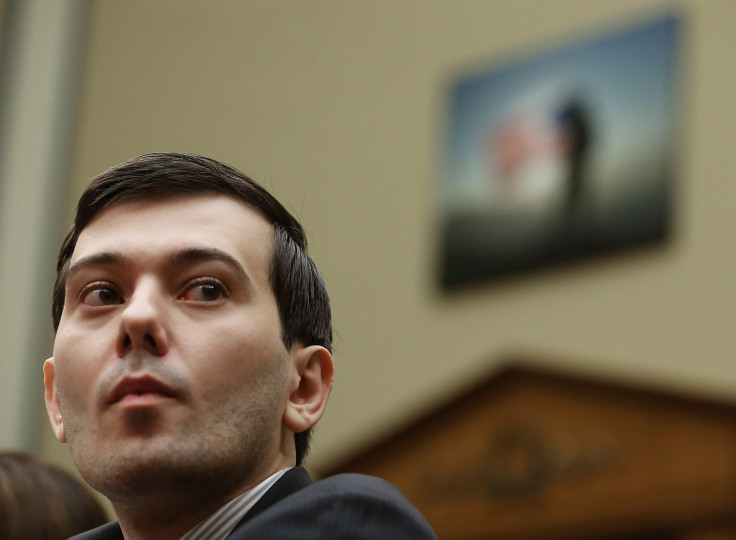Drug Prices Through The Roof: Big Pharma Doubles Prices Of Treatments For Arthritis, High Cholesterol, Other Conditions

After Martin Shkreli, a Brooklyn-born hedge funder and pharmaceutical executive, announced last year he would jack up the price of a cheap anti-parasitic drug used for rare infections to $750 per pill from $13.50, he instantly became a poster child of corporate greed and indifference.
But when looking at how high prices have risen for some of the most popular pharmaceuticals, Shkreli seems less a pariah and more a business-as-usual drug company executive.
According to a Reuters analysis of IMS Health and Truven Health Analytics, some of the world’s top and most profitable drugmakers have increased the prices of their most popular drugs in the U.S., by more than 100 percent since 2011 in some cases.
These steep hikes cover drugs used to treat conditions including arthritis, diabetes, multiple sclerosis and asthma, adding billions of dollars to the cost of treatment, affecting patients, employers and public healthcare budgets.
These increases exemplify a lingering problem that wasn’t solved by the Affordable Care Act, which requires most Americans to buy health insurance. It was signed into law in 2010 and supported by a landmark Supreme Court ruling in two years later.
Drug prices continue to far outpace growth in other healthcare-related spending, which in turn has far outpaced core inflation and wage growth. The rising costs price many Americans out of access to life-extending treatments. Even with health insurance, many cannot afford the out-of-pocket expenses.
Peter Bach, director of the Health Policy and Outcomes program at Memorial Sloan Kettering Cancer Center, told Wired magazine in December that Shkreli shows the pharmaceutical pricing system is “so broken even a child could manipulate it.”
Drugmakers routinely point to the complicated arithmetic of the industry, which can devote a large chunk of revenue to research and development for treatments that never make it to market.
Topping the list of price hikers was AbbVie Inc. (NYSE:ABBV) and Amgen Inc. (NASDAQ:AMGN), which raised the price of their arthritis drugs by 126 percent and 118 percent, respectively. A dose of AbbVie’s Humira now costs nearly $3,800 at wholesale, up from nearly $1,700 in 2011, while Amgen’s Enbrel has risen to $932 from $427 five years ago.
Teva Pharmaceutical Industries Ltd. (NYSE:TEVA) raised the price of its multiple sclerosis treatment Copaxone to nearly $6,600 a dose, up from about $3,000 in 2001. AstraZeneca was the fourth company to more than double its most popular drug, Crestor, which treats high cholesterol, to $745 from $350.
© Copyright IBTimes 2025. All rights reserved.






















